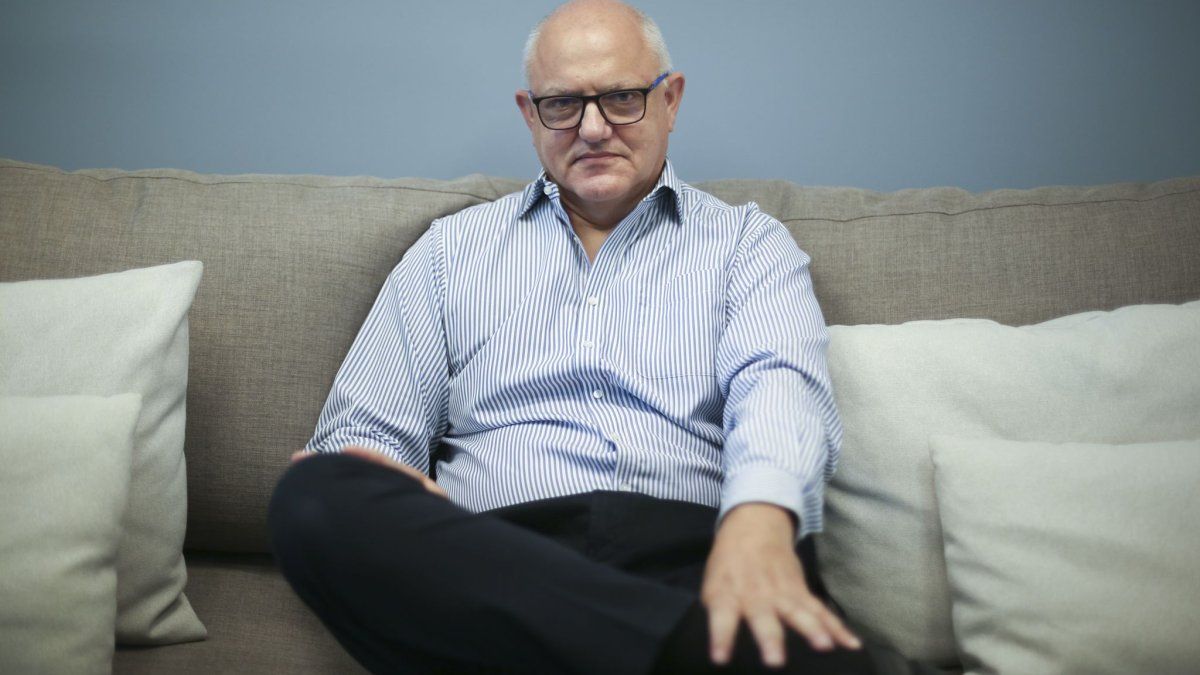Javier Timerman: By definition, One turns to the background when it has a liquidity crisis, or a crisis in the current account. If one goes to the bottom and says “I need money for works”, he will say, “no, I’m not for this.” The situation requires, in order to comply with the plan that they have proposed, access to this money that could not be taken at this time through the capital market, because the conditions are not given and there is no other source of financing. Other sources of financing could have been external investment, as there was in the time of Menem, sale of state assets, silver of Argentines who want to invest with a high exchange rate, as happened in the time of Nestor (Kirchner), but that is not happening. After the money laundering, now they consider that they need to strengthen the balance sheet of the Central Bank, and go on that path.
Q.: How did the Government dynamics incorporated the market to confirm the requested amount? First Caputo spoke, followed by that the fund, although without ratifying anything announced, and finally the officials of the economic team.
JT: I do not agree with the government in terms that markets have to be taken peace of mind, because it does not seem to me that the markets are so uneasy, it seems to me that the markets have some volatility that produces that some anxiety be believed in Argentina. Volatility that is typical of markets.
What the government said and what the fund said: “Much difference”
Q.: It is true that the market expected a signal that would reduce uncertainty about the next steps of the program.
JT: It is a difficult exercise to calibrate, because when you say “I want to reassure you”, you are somehow indicating “I need to be calm.” So, you are accepting in some way that you have a problem, that the markets are uneasy. And that, in short, produces more anxiety on the part of the markets. I read a headline that said that the Government opted to change the humor of the markets, but it is difficult to know how humor is changed, one never knows the impact that can have. That the government has left on Thursday with all its spokesmen to speak, it shows that the message was not clear. And that was noticed among all those who observe the markets, which we dialogue with investors, which we have to talk to our customers. It was not clear what the government was transmitting and that created some anxiety, which calculates will calm when the details of this agreement are known. In that sense, The government said the agreement does not include devaluation or fiscal adjustment, and the fund said they are still under discussions of the specific issues of the program. Well, between those two phrases there is a lot, a lot of difference.
Q.: You might think that all governments seek to mark the court in the background in the middle of the negotiations.
JT: Yes, it can be. Several already caught the attention that this program has been delayed so much. I think the fund made an error when lengthening this negotiation. Argentina suggested that this agreement be signed before. Many assume that the government speculated with Trump’s arrival to the government, something that can give Milei more favorable conditions. If you notice that the market is uneasy, the market becomes more uneasy. I am the idea that there is no market crisis at this time, that the dollar has some volatility, that markets have some volatility. We are going through a great financial turbulence at a global level and we saw it on Friday in the market. Friday was a very negative day for global markets. To our country, although it fell, it was better than what went to global markets. However, here a sense of instability is created, more than anything because of the exchange rate, because the Central Bank is losing reserves. I believe that the Government, the IMF and the investors know that you have to accumulate reservations and the discussion revolves on the most leading path to that goal. That also includes the flexibility of the exchange rate, to take it to a free exchange rate model.
Q.: How do you get to the free exchange rate?
JT: Well, the government believes that the best way to get is without making the exchange rate more flexible beyond 1% of ‘Crawling Peg’, making reforms and waiting for this to generate confidence in investments. The fund, generally, requires that there is no fixed exchange rate or as restrictive as Argentina has. That discussion today is not known how it is going to settle and I think that matters much more than how many reservations we will receive or how the background disbursements will be. That impacts less on the market than the issue of possible exchange flexibility.
“You have to go to a free exchange rate”
Q.: Can Argentina bear exchange flexibility?
JT: I personally do not believe that economic models are models that must be applied exactly because they are exact mathematical models. I believe that each country has its idiosyncrasy, its history. Today, fixed exchange rates are no longer known, You have to go to a free exchange rate, a balance exchange rate that gives investors peace of mind, not only financial investors, but also investors in the real economy. Anyway, it is true that Argentine governments generally pay a cost for having this type of exchange model, because at times where inflation rises, we are prone to go to the dollar. Many times unjustifiably, but hey, it is so. There are other countries where they put a stocks and people go out to protest, but it does not bother them that the dollar rises and rises a lot, because it does not impact the same way that it impacts on Argentina, in terms of transfer at prices. So, I believe that it will have to go to that system and someone will have to pay the initial political cost of exchange volatility. That is something that will happen.
Q.: Did the government already pay costs for taking unpopular measures?
JT: The Government was encouraged to pay the cost, which ended not being a cost, of making a fiscal adjustment that Argentine politicians were not encouraged to do, although many believed that it had to be done. The same thing happens with the exchange rate, The Argentine exchange rate must be free, but no one is encouraged to pay the cost of volatility for now. I think that is what is under discussion with the background, not necessarily the amount of money. The nominal robustness of the program is less important than the details that are still discussing.
Q.: A central factor for which the BCRA managed to buy dollars for 2024 was the indebtedness of companies in dollars, the product of the “trade carry”. Is it a double -edged sword?
JT: Things are triggered very quickly in the financial market. When you are in a situation where you fail to accumulate reservations beyond possible indebtedness with the fund or the private sector, it is risky that the ‘carry’ is cut, because that arbitration is no longer that allows you to sell dollars and invest in pesos, the investor does not believe that the rate difference that wins will cover the devaluation risk. That’s why The background requires that you flexible your exchange rate before that ‘carry trace’ is cut, so that the market does not do it for you.
“For all this to work, Argentina has to return to the markets”
Q.: How much fire power gives the BCRA the figure of US $20 billion, according to adorni of free availability?
JT: In terms of free availability reserves, we believe that the initial disbursement will be US $ 6,000 million YU $ S14,000 as they disbursed. If it reaches or not, it would answer the same if you tell me there are 30,000: I do not seem to have to do with an absolute number, rather it seems to me that it has to do with how certain events are unleashed that we are going to have this year.
Q.: Caputo ensures that this time the agreement with the IMF is different than the previous programs. Does it coincide?
JT: This time it has something different, which is the fact that Argentina made a fiscal adjustment that will allow some flexibility and makes some credibility to the government. There were no periods where the fund was accessed with fiscal surplus, so one could say that the government will use these reservations mainly to strengthen the Central Bank. That is different, but it is not necessarily free of risk because we are going through an electoral year that will have its comings and turns. Something similar we saw in 2019, when the government of that time was much worse than expected and the markets reacted in a very violent way. And at that time there was also a fiscal surplus, so there is no guarantee of anything. We also have a moment, as we had in 2019 or 2018, of global uncertainty. It is not known what this commercial war between the United States and the rest of the world will end. There is also political conflict between the US and Europe. All this will impact the humor of global markets and that will end up impacting the final objective of Argentina. For all this to work, Argentina has to return to markets. The vicious circle of indebtedness with the background has to become a virtuous circle of indebtedness or debt roll with the private sector.
Source: Ambito




